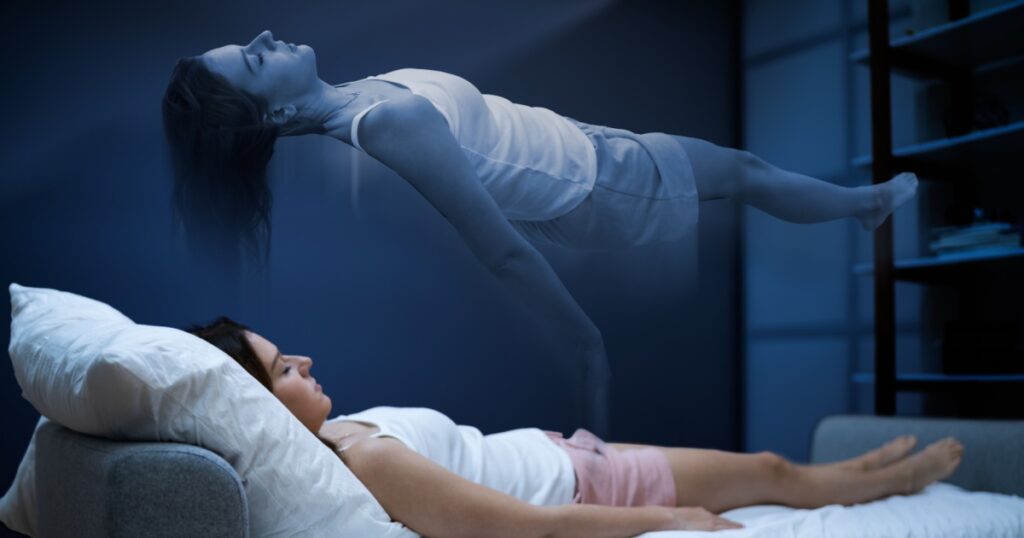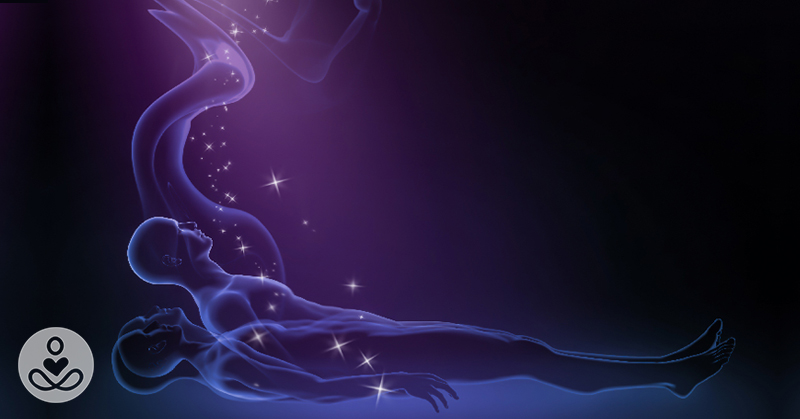Dreams have been perplexing humans since the beginning of time. We’ve attempted to study them, analyze and interpret them, and figure out what causes them, why we have them, and what they could possibly mean for our lives. While some just accept dreams and nightmares as a part of life, many others believe dreams, and more specifically lucid dreams can help better a variety of aspects of our lives.
What is a Lucid Dream?

A lucid dream is one in which the dreamer is aware that they are dreaming, and has more control over their thoughts, actions, and what happens in the dream. Lucid Dreamers have the ability to make decisions in their dreams and can wake themselves up if it turn into an unwanted nightmare. Have you ever had a dream in which you knew you were dreaming, one where you were able to say “I know that this is not reality, not actually happening, and I have control over this situation.” and force yourself to wake up if the dream took a turn for the worse? Then you were having a lucid dream.
Read More: The Benefits of CBD for People with Insomnia and Other Sleep Disorders
Why do people want Lucid Dreams?

People have been attempting to induce lucid dreams since before the modern era, with hieroglyphics depicting lucid dreams, among other ancient artifacts that reference them.
Religious Enlightenment

Tibetan Buddhist Monks have been using lucid dreaming to reach enlightenment for thousands of years. By maintaining conscious awareness while dreaming, they are able to complete a series of tasks, allowing them to move to a new level of spiritual understanding and divination. (1)
Athletic Performance

Studies have shown that practicing certain physical skills in a dream may help you perform better in competition. The idea is that you can increase your “muscle memory” by practicing a skill such as your free-throw or upper-cut punch, and you will wake up with improved ability. (1)
Solve Problems

When posed with creative problems before going to bed, lucid dreamers have literally solved them while they slept. (1) (2)
Reduce Nightmare Frequency

Lucid dreaming seems to be effective in reducing the frequency of nightmares, a light of hope for those who suffer from post-traumatic stress disorder. (1) (3)
Read More: Brittle Nails? Poor Sleep? Start Eating More Of These Foods Immediately
Freedom and Escape

In lucid dreams, people are able to do things they never thought possible and construct their own reality. Dreamers have the chance to meet their idols, fly over the Grand Canyon, or win the 100m at the Olympics. Some have also used lucid dreams as a way to grieve and seek closure after the loss of a loved one. (1)
Create Mindfulness

The ability to maintain awareness throughout our day and live “in the moment”, without passing judgments or forming any hard-fast opinions, is something many of us struggle with. Achieving mindfulness allows us to be more open-minded and accepting of other people’s flaw as well as our own. It allows us to be less distracted by our stressful, busy lives and appreciate what is happening in the present moment. Mindfulness is associated with improved well-being and positive self-talk. (1) (4)
How To Induce Lucid Dreams

Lucid dreaming is the ability to be aware that you are dreaming while you are still in a dream state, and it can be an exciting and empowering experience. To induce lucid dreams, you can employ several techniques.
Herbal Supplements for Lucid Dreams

A quick search on the internet will provide you with an overwhelming list of herbs and supplements to help induce lucid dreams. The problem is most of these have no scientific evidence of efficacy, and some have even proven to be dangerous to your health. (5) Here are a few substances that haven’t proven to be dangerous and may help in combination with meditation and mindfulness exercises. (6)(7)(8)(9)
- Mugwort
- Silene Capsensis
- Galantamine + Choline
- 5-HTP
- Valerian Root
There are also many products you can purchase that combine these ingredients in specific amounts to help induce lucid dreams, such as this one.
Meditation

Meditation is the most widely practiced and safest way to induce lucid dreams. It is used to calm the mind and disassociate awareness of the outside world from your physical body. This heightened state of awareness will allow you to fall asleep consciously and have lucid dreams. (10)
Read More: The Recommended Sleep Times According to the National Sleep Foundation
3 Exercises to Induce Lucid Dreams

Inducing lucid dreams can be an exciting way to explore your subconscious mind and gain more control over your dream experiences. There are several exercises you can practice to increase the likelihood of achieving a lucid dream state. These methods focus on enhancing your awareness, improving dream recall, and optimizing your sleep patterns. By consistently practicing these exercises, you can train yourself to recognize when you are dreaming and even influence the direction and outcome of your dreams. Let’s explore three effective exercises to help you induce lucid dreams.
Visualize Dream Themes

Our dreams are often based on our experiences and thoughts throughout the day leading up. To induce a lucid dream, visualize what you’d like to dream about (for example, winning an Oscar or canoeing with your dad) while simultaneously thinking “I will lucid dream tonight”. You will then dream about what you fabricated in your mind before going to bed, but be more able to recognize that it is not reality.
Breathing Meditation

Performing breathing meditation will help you become more self-aware throughout your day, by forcing you to relax and concentrate on the simple behavior of inhaling and exhaling. This clarity of mind will help you be better able to separate the dream world from the real world. Perform this daily, and your self-awareness will increase, allowing you to become spontaneously lucid in your dreams. Follow these steps for breathing meditation:(10)
- Sit down with your spine straight and your chest open. You can sit on the floor, on cushions, or on a bench, as long as you are comfortable and sitting up tall.
- Close your eyes. Slowly raise your hand in front of you for five counts while you inhale. Without pausing, lower your hand back down for five counts while you exhale. Repeat this, focusing only on your hand and breath.
- Focus on the breath going in and out of your lungs. Pay close attention to how it feels. If your mind wanders, refocus.
- If your hand becomes tired, switch hands, or simply let your hands rest and focus on your breath. When you are ready, shift your focus to how your breath feels in different parts of your body.
- Be sure to stay fully engaged with the meditation, refocusing whenever your mind wanders or if you start to feel bored. This takes practice and will improve over time.
Guided Meditation

Guided Meditation involves creating a daydream, or inner visualization, and can help you enter into a lucid dream purposely. The key to guided meditation is time – if you are in a rush it won’t work. Follow these steps for a guided meditation:(10)
- Find a place that is quiet, comfortable, and free of distractions. Lie down on your back.
- Take slow, deep breaths, paying close attention to the tension leaving your body. Allow thoughts to pass by your mind without dwelling on them. Silence your inner chatter and fully relax your body. From here, you can focus on visualization.
- Natural settings are usually the most effective to induce a lucid dream from meditation. Settings such as a beach, or a forest with a stream work well. Explore that setting in your mind, crafting both small details and a larger picture.
- As you visualize and explore the area you created, your body may fall asleep. This is called a Wake Induced Lucid Dream.
- Once in the dream, focus on details from all five of your senses – the shadow-play of the sunlight in the forest, the trickling of the stream, the smell of the leaves under your feet, and even focus on how it feels to move through your environment. You are now in a lucid dream and are in control of how you react to your fabricated environment.
Lucid dreams can be a beneficial way to train your brain, body, and heart to perform and respond in real-world settings. It can help you to overcome fears, practice tasks, and find closure from a difficult situation. Lucid dreaming may also help you to become more open-minded and accepting of other people’s mistakes, as well as your own.
Remember

It is important to remember that Lucid dreaming should only be used to better your life and the lives of those around you. Many of the supplements sold to help induce lucid dreams are unregulated, under-studied, and can be harmful, especially at high doses. Always talk to your doctor or naturopath before using anything new.
Sources
- (2) https://journals.ub.uni-heidelberg.de/index.php/IJoDR/article/view/6167/pdf
- (3) https://www.karger.com/Article/Abstract/95446
- (4) https://psychcentral.com/news/2014/08/17/lucid-dreamers-show-stronger-insight-in-waking-world/73693.html
- (5) https://www.hindawi.com/journals/jt/2016/9794570/abs/
- (6) https://www.google.com/patents/US20040266659
- (7) https://www.google.com/patents/US20080199538

